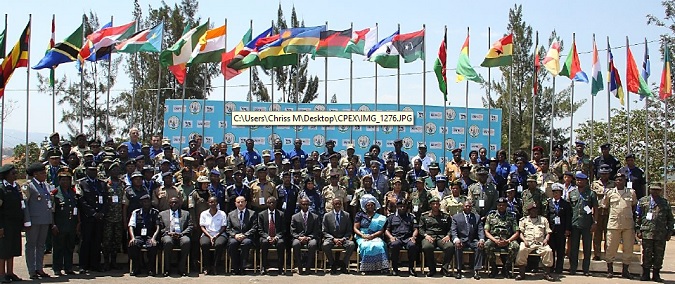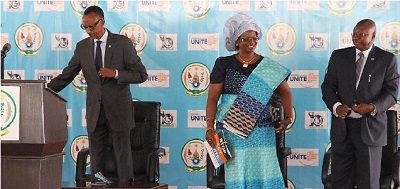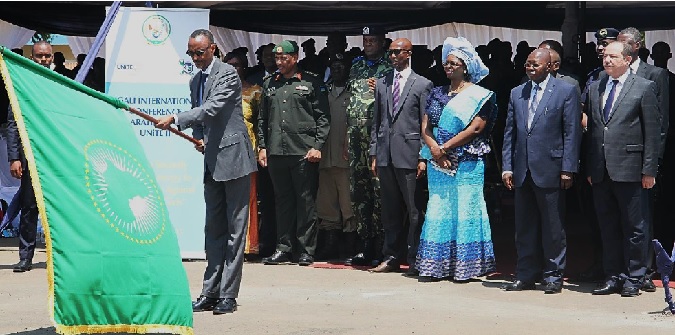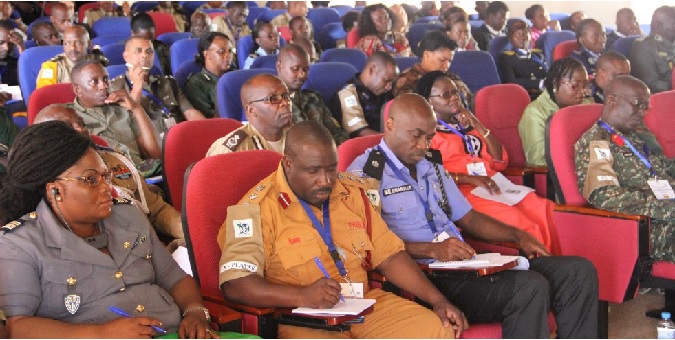Command Post Exercise – CPX Africa UNiTE II for African Security Organs to end Violence Against Women and Girls
Date:

Violence against women and girls (VAWG) is the most widespread form of abuse worldwide. In response to this pervasive problem, UN Secretary General Ban Ki –Moon (on 25th February, 2008) initiated the global UNiTE Campaign to End violence against Women and Girls which aimed at preventing and eliminating VAWG in all parts of the world as well as providing services to survivors.
A regional component of the above global campaign, the ''Africa UNiTE'' Campaign was launched in 2010 in Rwanda. In an International conference on the role of security organs to end VAWG, African countries committed through ratification of the Kigali International Conference Declaration that specify obligations for the elimination of violence against women.

In his remarks, the One UN Resident Coordinator, Mr. Lamin Manneh commended the efforts made by the Government of Rwanda in preventing and responding to Gender-Based Violence cases: “If we take the example of the host country, Rwanda has established the Isange One Stop centers in many districts, providing a comprehensive package of services to GBV victims including medical, psychological, forensic and legal support. Furthermore, the Rwanda National Police and Rwanda Defense Force Gender Desks are now fully operational.” Mr. Lamin Manneh also saluted the support of H.E. the President to the HeForShe Campaign.
UN Women Representative to Ethiopia, African Union and the United Nations Economic Commission for Africa, Ms. Letty Chiwara commended the achievements made by the KICD since its launch and the importance of the Command Post Exercises. While addressing the relevance of the Africa UNiTE and KICD, she quoted the UNSG who said: “We must unite. Violence against women cannot be tolerated, in any form, in any context, in any circumstance, by any political leader or by any government”. Ms. Letty Chiwara requested to H.E. the President to support advocacy to the African Union to Integrate the KICD in the African Union Framework; considering that the UNiTE Campaign is coming to an end; which the president gladly accepted.


Among other recommendations, participants to the CPX Africa Unite II expressed that security organs need to increase women's representation in military and police positions through affirmative actions; equity should be integrated in recruiting more women in the military and the police. It was argued that women's presence is highly beneficial in peacekeeping and security operations and therefore women must be recruited to such positions. GBV victims are generally much more trusting and comfortable reporting their experiences to women rather than men.
Unanimously, participants recommended that Rwanda shares its best practices from the Isange One Stop Centre – IOSC model in regards to the 24/7 free holistic care for victims of gender based violence as well other new improvements to the model such as the ongoing work to improving forensic measures (in order to gather evidence), the psychological support, as well as the economic reintegration of victims.